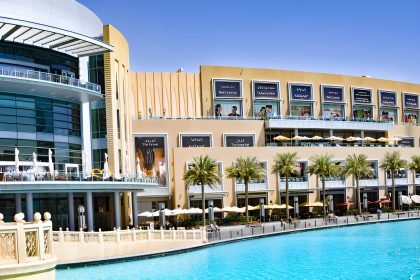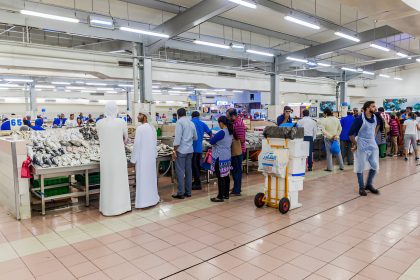Sonapur is a lesser-known area that is hidden away from Dubai’s flashy skyscrapers and fancy stores. Sonapur is mostly known as a place where many labourers live. However, it also has a tale of migration, work, strength, and community. It isn’t a tourist attraction, and most people who go to Dubai may never see it, but it is very important to how the city works.
- Understanding the Origins of Sonapur Dubai
- Location and Accessibility
- The Meaning Behind the Name “Sonapur”
- Demographics and Population
- Life in the Workers’ Accommodation
- Employment in Sonapur
- Challenges Faced by Workers
- Government Regulations and Reforms
- Cultural Aspects of Life in Sonapur
- How the Media Portrays Sonapur
- Myths vs. Reality
- Conclusion
This guide will look into Sonapur’s history, culture, problems, and changes that are still happening. Our goal is to throw light on a region of Dubai that isn’t often talked about but is very important to comprehending the city’s social and economic backbone.
Understanding the Origins of Sonapur Dubai
The workers themselves gave the place the nickname “Sonapur,” which means “City of Gold” in Hindi. The name is both funny and meaningful. For many workers, Dubai was a place where they might make more money, but the truth was frequently much less glamorous than they had hoped.
In the early 2000s, Sonapur started as a group of labour camps for the many migrant workers who were coming to Dubai to work on the construction boom. As time went on, the area grew to fit tens of thousands of labourers from South Asia, Africa, and other places.
Location and Accessibility
Sonapur is located in the Al Muhaisnah industrial area of Dubai, near the border with Sharjah. It’s about 14 to 20 kilometres from Dubai’s city center, depending on the route.
Getting to Sonapur from Central Dubai
- By Bus: Dubai’s RTA operates several routes to the Muhaisnah area, but workers primarily use these.
- By Taxi: A ride from Downtown Dubai can take around 25–35 minutes, depending on traffic.
- By Car: Easily accessible via Sheikh Mohammed Bin Zayed Road (E311).
While the location is far from tourist attractions, its proximity to industrial zones makes it practical for workers in construction, manufacturing, and logistics.
The Meaning Behind the Name “Sonapur”
In Hindi and Urdu, the name Sonapur means “City of Gold.” Dubai was advertised as a “golden city” where migrant workers from India, Pakistan, Bangladesh, Nepal, and other countries could find much work and make a lot more money than they could back home.
Over the years, though, the word has come to denote something sad. Dubai has given people jobs and money, yet many workers in Sonapur work long hours, get low pay, and live in primitive conditions. Even still, for most workers, these wages are life-changing compared to what they could make in their native nations.
Demographics and Population
Sonapur is home to tens of thousands of workers, most of whom are men in their 20s to 50s.
Workers’ Nationalities and Communities
- South Asia: India, Pakistan, Bangladesh, Nepal, and Sri Lanka make up the majority.
- Africa: Workers from Kenya, Nigeria, and Ethiopia are increasingly present.
- Southeast Asia: The Philippines, Indonesia, and Myanmar contribute smaller numbers.
While the majority are male, there are some female workers employed in factories, warehouses, and cleaning services who live in nearby accommodations.
Life in the Workers’ Accommodation
The worker camps in Sonapur range from basic dormitory-style housing to slightly more modern facilities built in line with recent UAE labour accommodation laws.
Housing Conditions
- Shared rooms with 4–8 occupants.
- Bunk beds to maximize space.
- Centralized bathrooms and kitchens.
Food and Daily Meals
- Meals are often provided by employers or bought from small canteens.
- Cuisines mainly reflect the workers’ nationalities rice, curries, chapatis, and lentils are common staples.
- On weekends, workers sometimes cook together, sharing traditional recipes from home.
Employment in Sonapur
Most residents of Sonapur are employed in labour-intensive industries.
Types of Jobs Commonly Found
- Construction: From skyscrapers to infrastructure projects.
- Manufacturing: Factories producing everything from furniture to electronics.
- Logistics: Warehousing, packaging, and delivery work.
Wages and Benefits
- Entry-level wages may range from AED 800–1,200 per month.
- Some workers receive food and accommodation allowances.
- Overtime pay is often available but varies by employer.
Challenges Faced by Workers
While Sonapur provides shelter and proximity to work, challenges persist:
- Crowded Living Conditions
- Limited Privacy
- Physically Demanding Jobs
- Long Working Hours (sometimes 10–12 hours a day)
- Emotional Stress from being away from family for long periods
Government Regulations and Reforms
The UAE has made strides in improving worker welfare in recent years.
Recent Policy Changes
- Introduction of midday breaks during peak summer heat.
- Laws requiring minimum housing standards for labour accommodations.
- Wage Protection System (WPS) ensures salaries are paid on time.
Cultural Aspects of Life in Sonapur
Despite the hardships, Sonapur is a vibrant cultural melting pot. Workers celebrate:
- Eid al-Fitr & Eid al-Adha (Muslim festivals)
- Diwali (Hindu festival of lights)
- Christmas & New Year for Christian communities
Sports, especially cricket and football, are hugely popular on rest days, with informal matches bringing different communities together.
How the Media Portrays Sonapur
International media often focuses on the difficult conditions in Sonapur, highlighting wage disputes and overcrowding. Local media, however, emphasize government reforms and improvements. The reality lies somewhere in between progress is being made, but challenges remain.
Myths vs. Reality
Myth 1: Sonapur is a slum.
Reality: Sonapur is a regulated housing district with improved living standards.
Myth 2: Workers live in poor conditions.
Reality: The government has upgraded housing and healthcare facilities dramatically.
Myth 3: It’s inaccessible to outsiders.
Reality: While it’s mainly for labor housing, visitors can enter for authorized purposes.
Conclusion
Sonapur might not feature in Dubai’s fancy marketing brochures, but it’s an important part of the city’s history. It is a reminder of the work that went into building contemporary Dubai and a place where thousands of people work hard to support their families back home. As the government makes changes and people’s lives get better, there is hope that Sonapur will become a more pleasant and dignified environment for its residents.









https://shorturl.fm/fTRyR